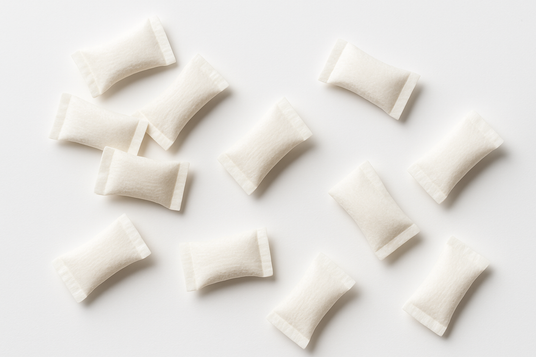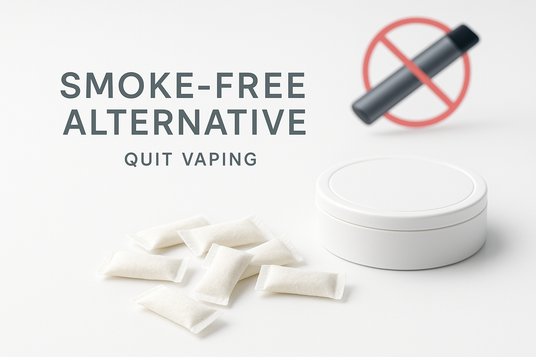
Are ZYNs Bad for You? The Facts Explained
Curious whether ZYNs are really bad for you? Our latest guide breaks down what’s in them, how they compare to smoking and vaping, and why more adults are making the...
Lewis Cash |
Get 15% OFF Your First Order!
As UK regulations tighten around smoking and vaping—especially for under-25s—many nicotine users are exploring alternatives. One product rapidly gaining attention is the nicotine pouch: a discreet, smoke-free option that offers nicotine without combustion or vapour.
But can nicotine pouches really help you quit vaping or smoking?
In this guide, we’ll explore the science, the risks, and the potential role pouches could play in your transition away from tobacco or e-cigarettes.

Nicotine pouches are small, pre-portioned bags placed under the lip. Unlike snus, they are 100% tobacco-free. They typically contain:
These pouches release nicotine through the lining of the mouth and are available in varying strengths—making them ideal for people trying to reduce their intake over time.

Nicotine pouches are not licensed stop-smoking medications like nicotine patches or gum, but they are used by many to quit vaping or smoking.
While nicotine pouches are likely less harmful than smoking or vaping, they are not risk-free.
They still deliver nicotine, which is addictive.
Some users report gum sensitivity or discomfort.
As of now, pouches aren’t regulated as strictly as e-cigarettes or tobacco in the UK.
The Committee on Toxicity (COT) in the UK has acknowledged limited evidence on long-term risks but considers nicotine pouches lower risk than combustible tobacco.
If you're transitioning from vaping or smoking to nicotine pouches, consider these strategies:
Match your current nicotine consumption (e.g., 12mg/ml e-liquid = 6–8mg pouch).
Once comfortable, step down to lower strength options gradually.
Avoid using pouches “just because.” Instead, use them when cravings hit and slowly reduce frequency.
Keep a quit diary or app log. Monitor how many pouches you’re using daily or weekly.
For those with heavy addiction, combining nicotine pouches with behavioural support from the NHS or stop smoking clinics may be most effective.
Nicotine pouches may be a viable harm-reduction tool, especially for
However, they are not recommended for non-smokers, pregnant people, or minors. If you're unsure, consult your GP or a licensed smoking cessation specialist.
Nicotine pouches offer a cleaner, discreet, and potentially safer route for those ready to break free from smoking or vaping. While more research is needed on long-term effects, many users report success using them as part of their quit journey.
As always, the best choice is to eventually eliminate nicotine altogether—but harm reduction is a valid and commendable first step.
Yes, many users have successfully used nicotine pouches as a stepping stone to quit vaping. Pouches provide nicotine without the harmful chemicals found in vapour or smoke, making them a potentially lower-risk alternative. However, they are not medically licensed quit aids in the UK.
Nicotine pouches are smoke-free and vapour-free, so they don’t expose the lungs to aerosols or harmful compounds. This makes them a cleaner option for nicotine delivery. That said, both products contain nicotine and are addictive.
Yes. Some people use pouches as part of a gradual quitting strategy. Since they are discreet and available in different strengths, they can help reduce nicotine intake over time. For best results, consider combining them with professional support from stop-smoking services.
Yes. Nicotine pouches still contain nicotine, which is highly addictive. If you're trying to quit completely, it’s important to use them strategically and aim to reduce your intake over time.
While daily use of nicotine pouches may be safer than daily smoking or vaping, it still carries health risks, especially for your gums and oral health. Long-term effects are still being studied, so moderation is key.
Possible side effects include gum irritation, dry mouth, hiccups, or nausea, especially if you're new to nicotine or using strong doses. If symptoms persist, reduce your usage or consult a healthcare professional.
Yes, many people use pouches as a temporary aid while tapering off nicotine. Choosing lower-strength products and setting a reduction plan can help support this process.
Lewis Cash
